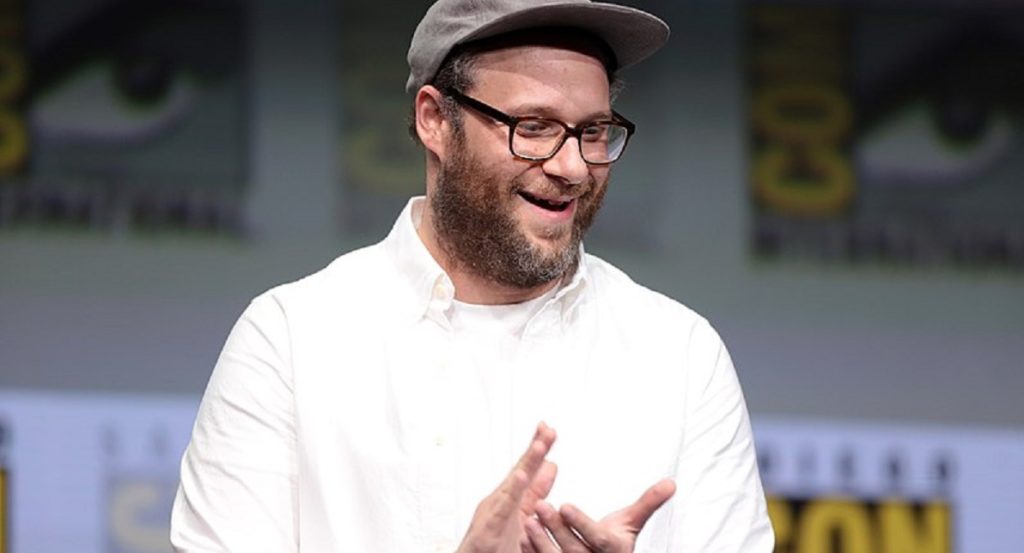Seth Rogan Speaks Out Against Racist Cannabis Policing

Seth Rogen Joins Livestream To Talk Cannabis Regulation And Racism
Seth Rogen has consistently made us laugh in comedy flicks like Superbad and Pineapple Express. He’s so funny that you’d never expect him to be passionate and speak so intelligently on issues like societal discrimination and cannabis regulations.
But it’s true – Rogen, 38, has been an outspoken cannabis advocate for years. He launched his own cannabis brand, Houseplant, alongside screenwriter Evan Goldberg. And he’s been getting pretty close to his friend Mary Jane while staying at home during the COVID-19 pandemic.
READ MORE: Seth Rogen is Smoking Ungodly Amounts of Weed During Pandemic
But don’t be fooled by the Canadian actor’s goofy side: he takes cannabis very seriously. In fact, he recently participated in a virtual panel discussion aimed at tackling racism in the modern cannabis market. The three-hour panel, titled “Reimaging Justice: Race, Cannabis, & Policing,” was organized by the Marijuana Policy Project, and featured a live, timely conversation between civil rights and cannabis activists.
What’s Wrong With The Marijuana Market?
The problematic aspects of marijuana regulation go back to the 1970’s, when Richard Nixon was the President of the United States. Nixon’s administration launched an anti-cannabis initiative called ‘The War On Drugs.’ This would see strict legal action taken against anyone caught with drugs, which unsurprisingly led to mass incarceration.
Nixon’s approach to drug regulation had a particularly ugly slant towards visible minorities. The war on drugs hit hardest against people of colour. This was likely intentional, considering this quote from Harry Anslinger, a politician heavily involved with the war on drugs:
“There are 100,000 total marijuana smokers in the U.S., and most are Negroes, Hispanics, Filipinos, and entertainers. Their Satanic music, jazz and swing result from marijuana use. This marijuana causes white women to seek sexual relations with Negroes, entertainers and any others.”
With blatant verbal attacks against Black Americans like these, it’s nearly impossible to view the anti-drug boom of the 1970’s as anything other than racist. Though Black and White Americans use marijuana roughly at the same frequency, data shows that more Black Americans have been arrested, and are arrested more frequently.
Fast-forward to 2020. Marijuana is legal for both medical and recreational purposes in Canada and dozens of states in the U.S. You can hear songs on the radio about weed, and walk down the street wearing weed paraphernalia without batting an eye. The taboo against weed has been chipped, and alongside new legislation, marijuana has become part of a lucrative industry. In Canada, for example, legalized marijuana raked in more than a billion dollars in 2018 alone. But many cannabis activists believe the marijuana market sees success stories for white participants, but does not address the last half-century’s struggle.
“If you are white people in the cannabis space, you should acknowledge the realities of the space you were entering and the conditions on which this industry was built and the history of cannabis in America” Rogen said.
READ MORE: Seth Rogen to “All Life Matters”: unfollow me
Cannabis activists are looking for ways to make the marijuana market fair to everyone – and an important step in that is record expungement.
According to Merriam-Webster, to expunge is “to strike out, obliterate, or mark for deletion.” To make the marijuana industry fair, cannabis activists believe it’s not enough to simply legalize marijuana – expunging the criminal records of anyone charged with a non-violent cannabis-related crime is a vital step.
“Expungement is incredibly important to us, because it is a step in correcting some of the wrongs, and giving back some of the rights that these people, who have been negatively affected by the war on drugs [and] had taken away from them for no reason.”
To see Rogen and others discuss these concepts, along with more ways to move forward, watch “Reimaging Justice” on Youtube.
Blunt
As we continue to see the cannabis industry unfold and take flight before us, we strive to become the leading global provider of real-time, high-impact multimedia news, information, and entertainment. With our vast network of millions of users, including major influencers in the cannabis industry, we continue to deliver relevant, quality content to help educate and inform.
